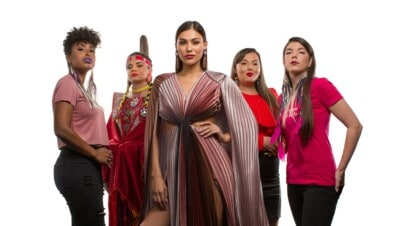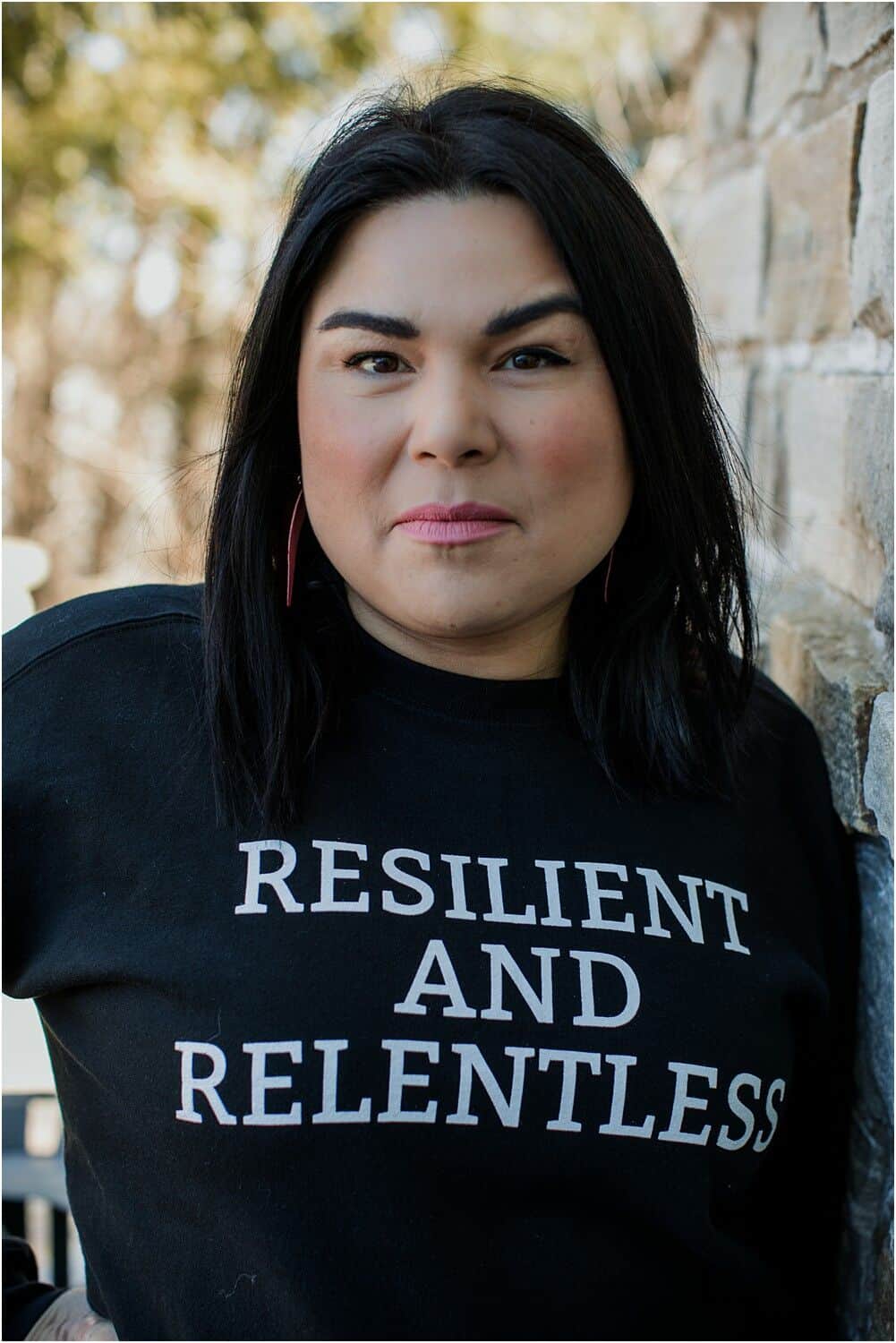Jenn Harper is the founder of Cheekbone Beauty, an Indigenous-owned, cruelty-free cosmetics company with a mission: to make a difference in the lives of Indigenous youth. She set out to achieve this by ensuring there is Indigenous representation throughout the brand, as well as by donating 10% of Cheekbone’s profits to the First Nations Child & Family Caring Society (FNCFCS). Jenn is also an advocate for alcohol-use disorder, sharing her story unabashedly to help those who are currently suffering, and to fight the stigma that still surrounds the illness.
Estranged from her birth family for much of her childhood, Jenn didn’t know much about her culture or history. When she began to explore, she learned that her grandmother was a residential school survivor. It was this discovery that helped her to make sense of her story. Beginning to process her inter-generational trauma was, and continues to be, an integral part of her ongoing recovery.

There was a time when Jenn didn’t believe she could ever stop drinking, but she did, and since that day her life has taken on a direction that exceeds her wildest dreams. She bravely entered CBC’s Dragon’s Den to get funding for her business. She succeeded, and sales have been steadily growing since then. Her story is one that offers much hope and inspiration.
How did you stop drinking?
The Creator’s power. This was not me; I could not do this alone. I tried on my own for 6 years: went to rehab in 2010, support meetings—everything. One day, after my rock bottom, almost a disastrous end to my life as I knew it, I prayed and admitted I cannot do this alone.
What does your recovery look like today?
A daily practice; I wake-up in prayer in gratitude. I have a morning routine that is very spiritual.
What was a major discovery you made during the early days of your recovery?
Pride and ego are deadly, literally. If we allow those traits to control our lives we will be miserable. Growing into a more humble person, or trying. It takes practice.
What have you discovered more recently?
Never stop relying on your Higher Power. For me, that is the Creator of the Universe. Meditation on that power is mind blowing. The Sun was created by the Creator. Just think about the ‘power’ of a pin drop of the sun, what that could do. It would melt anything between Toronto to Buffalo. I have not had a craving for alcohol throughout my 5 plus years of sobriety, but for three occasions. It was not even a physical craving but a mental craving. A massive stressful situation occurs and my mind went, “I need a drink.” Thankfully, my mouth and body reject the thought. I can’t explain it, but I know a power beyond myself is helping.
When someone asks you why you don’t drink, how do you respond?
I am a very confident recovered alcoholic!
What does fun look like to you today?
Hanging out with my family. My kids and husband are hilarious; we have such a great time together, whatever we are doing. We love to eat, so food is always involved! I have the best time whatever I am doing now; I enjoy connecting with others. I get that this part is likely so hard for someone struggling, because you may think you will never have fun again. You are so wrong. You will have the most fun you have ever had in your life!
What do you want to say to the woman still struggling?
Oh man, I love this question, but I know each one is on their own journey. So just that it is possible to recover and live the most incredibly joyous life; to be free from the slavery of addiction! That dark pit of hopelessness is not real.
What stigma do you think needs to be smashed?
The idea of anonymity really ticks me off! Remove the shame and the whole darn world would have a much easier time getting well. The idea that mistakes are the end of something. Let’s flip that. Mistakes are the beginning of a whole new way.
What’s the greatest gift that sobriety has given you?
Freedom! Joy! Clarity! I am so happy. Even on days when nothing is going well, I am so happy! I feel everything and love it!
In our ongoing Womxn x Alcohol series, we’re interviewing dozens of Canadians who stopped drinking to support their mental health as a way to explore and demonstrate how broad the alcohol-use disorder spectrum is. Through sharing our stories, we hope to begin to educate the masses that recovery looks different for everyone, while also fighting the stigma that prevents healing—as individuals, and also as a society.



 Follow Us On Instagram
Follow Us On Instagram
